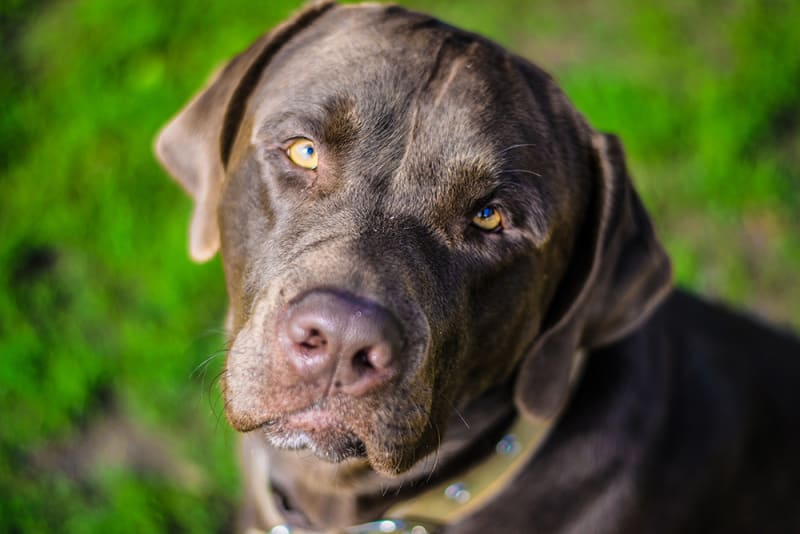You’re excited to take your furry companion for a walk, but to your frustration, they suddenly stop in their tracks and refuse to move. It can be puzzling and even frustrating, but don’t worry, there are reasons behind this behavior. In this article, we’ll explore some common causes of why dogs stop walking and provide solutions to help you and your pup enjoy your walks together.
Pain
One possible reason why your dog is reluctant to walk is pain. Joint pain, a cruciate injury, or a cut paw pad can all make walking uncomfortable for your furry friend. To rule out any underlying conditions, it’s important to schedule a checkup with your veterinarian. Additionally, examine your dog’s gear, such as their harness or collar, as they may be causing discomfort.
Fear
Fear can also cause dogs to stop walking. This fear may stem from previous traumatic experiences, such as being hurt by another dog or being hit by a car. To help your dog overcome their fear, it’s essential to identify the source and patiently work to desensitize them. Start by walking near your home and gradually increase the distance as your dog gains confidence. Working with an experienced trainer can also provide valuable guidance and behavioral modifications.
Inexperience
Inexperience or unfamiliarity with walking gear, such as a harness or collar, can cause dogs to stop frequently during walks. This is especially common for rescue dogs or young puppies. Introduce the walking paraphernalia gradually, offering positive reinforcement at each stage. Begin by leash walking in a safe and calm environment, such as your living room or garden, before venturing further.
Overstimulation
Some dogs may become overstimulated during walks, leading to a lack of focus and a desire to stop. This often occurs in rescue dogs or those not accustomed to the outside world. To combat overstimulation, try distraction techniques such as scattering kibble on the ground or working with a trainer to redirect your dog’s attention. Teaching them to focus on you can help them feel calmer and more engaged during walks.
Fatigue
If your dog shows little enthusiasm for walks, it could be due to fatigue. Just like us, dogs have different exercise requirements based on their breed and age. Some dogs may need more exercise and mental stimulation, while others may require less. Consult with your vet or breeder to determine the appropriate level of exercise for your furry friend.
Bad Weather
Unfavorable weather conditions can also affect your dog’s willingness to walk. Extreme heat, cold, or poor visibility can make your dog uncomfortable and unenthusiastic about going outside. Be mindful of your dog’s weather tolerance and adjust your walking schedule accordingly. Consider outfitting them with protective gear, such as a coat or booties, to ensure their comfort.
Pooch Wants to Go Somewhere Different
Just like humans, dogs have their own preferences and routines. If your dog stops walking because they want to go a different way or stick to their usual route, patience is key. Avoid reinforcing their stubborn behavior by simply waiting until they realize they’re not getting their way, then continue on your intended path.
Loving the Walk Too Much to Go Home
Sometimes, dogs don’t want to stop walking because they’re having so much fun. If your dog consistently stops near the end of their usual walk, it may be a sign that they want more. To make going home more exciting, try rewarding them with a special treat upon returning. This could be a stuffed Kong, a tasty dental chew, or their favorite soft toy.
Needs More Mental Stimulation
Reluctance to walk can also indicate a lack of mental stimulation. Your dog may be eager to explore different scents or interact with other dogs. Allow your pup plenty of time to sniff and investigate their surroundings during walks. Consider using an extending leash or visiting a local dog park to provide more opportunities for socialization and play.
Frequently Asked Questions
[Include relevant FAQs here]
Conclusion
Understanding why your dog stops walking is the first step towards addressing this behavior. By considering possible causes such as pain, fear, inexperience, overstimulation, fatigue, or even their unique preferences, you can work towards making walks enjoyable for both you and your furry companion. Remember, if you have concerns about your dog’s behavior or health, consult with your veterinarian for professional advice.
For more information about caring for your beloved dog, visit Pawsoha to explore our range of resources and articles dedicated to pet wellness and happiness.
